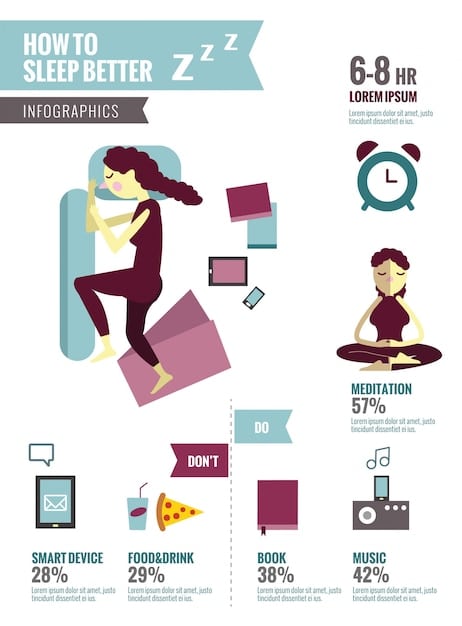Boost Your Mood: The Mental Health Benefits of a 30-Minute Walk

A recent study highlights that engaging in just 30 minutes of daily walking can significantly improve your mental well-being by reducing symptoms of depression and anxiety, enhancing mood, and boosting overall cognitive function and self-esteem.
Did you know that a simple 30-minute walk each day could be a game-changer for your mental health? A new study: how 30 minutes of daily walking can improve your mental well-being reveals the profound impact this small change can have on your mood, stress levels, and overall cognitive function. Let’s explore the amazing benefits that come with incorporating this easy activity into your daily routine.
The Science-Backed Benefits of Daily Walking
Walking is more than just a way to get from point A to point B; it’s a powerful tool for enhancing your mental and emotional health. Research consistently shows that regular physical activity, including walking, can have a significant positive impact on various aspects of your well-being.
Let’s dig into why a 30-minute walk can be a small yet effective way to improve your mental state, backed by scientific evidence and expert insights.
Reduced Anxiety and Stress
Walking helps regulate the body’s stress response system. It reduces the levels of cortisol, the primary stress hormone, and increases the production of endorphins, which are natural mood lifters.
Improved Mood and Self-Esteem
Regular walking can boost your overall mood and self-esteem. The release of endorphins creates a sense of euphoria, and achieving a daily walking goal can build self-confidence and a sense of accomplishment.

In conclusion, the science is clear: daily walking is a simple yet powerful way to enhance your emotional and mental well-being. From reducing anxiety to improving mood, the benefits are accessible to everyone.
Understanding the New Study on Walking and Mental Health
A groundbreaking new study reinforces the idea that regular physical activity, specifically walking, is a potent tool for boosting mental health. The research delves into the specifics of how a consistent 30-minute walk can lead to tangible improvements in mood, stress levels, and cognitive functions.
Let’s explore what the new study adds to our understanding of the relationship between walking and mental health and the key takeaways for those looking to enhance their well-being.
Key Findings from the Research
The study revealed several significant findings related to the mental health benefits of daily walking. These include specific improvements in mood disorders.
Specific Mental Health Improvements
The study pinpointed several significant mental health improvements associated with regular walking.
- Reduced symptoms of anxiety and depression
- Enhanced mood and overall sense of well-being
- Improved cognitive function, including memory and attention
- Increased self-esteem and body image satisfaction
Walking is a low-impact, accessible form of exercise that can be incorporated into your daily life without requiring specialized equipment or training. Making it a practical choice for individuals seeking a simple yet effective way to support their mental health.
How to Incorporate 30 Minutes of Daily Walking into Your Routine
Integrating 30 minutes of daily walking into your routine might seem challenging amidst busy schedules. However, with a bit of creativity and planning, it can become a seamless and enjoyable part of your day.
Here’s a guide filled with practical tips and strategies to help you make walking a regular habit, regardless of your current activity level or time constraints.
Strategies for Making Walking a Habit
Adopting a new habit requires a few specific strategies to ensure consistency and long-term success. Here are some actionable tips to make daily walking a regular part of your life.
- Schedule it like any other important appointment
- Set realistic goals and gradually increase intensity and duration
- Find an enjoyable route or change it up regularly
Walking as a Therapy: Combining Movement with Mindfulness
Walking can be more than just a physical activity; it can be a form of therapy that integrates movement with mindfulness. When you walk with intention, paying attention to your surroundings and your inner state, you engage in a practice that can significantly enhance your mental and emotional well-being.
Let’s explore how combining movement with mindfulness transforms a regular walk into a therapeutic experience, helping you cultivate a deeper sense of presence and calm.

Engaging Your Senses
Walking engages all your senses, creating a rich and immersive experience. Paying attention to these sensory details can ground you in the present moment.
- Notice the sensation of your feet making contact with the ground.
- Feel the breeze on your skin and the warmth of the sun.
- Listen to the sounds around you, such as birds chirping or leaves rustling.
By combining mindful walking with other mental health practices, such as meditation or journaling, you can amplify its benefits and create a holistic approach to well-being. It’s about creating a practice that is both enjoyable and sustainable, fitting into your lifestyle in a way that enhances your overall quality of life.
Walking and Social Connection: The Benefits of Group Walks
Walking doesn’t have to be a solitary activity; in fact, walking with others can significantly enhance its physical and mental health benefits. Social connection is a fundamental aspect of well-being, providing support, reducing feelings of isolation, and fostering a sense of belonging.
Let’s explore the advantages of group walks and how connecting with others while walking can amplify the positive effects on your mental health.
Finding and Joining Walking Groups
Joining a walking group is a great way to combine exercise with social interaction. Here are some tips for finding and joining existing walking groups or starting your own.
Benefits of Walking with Others
Walking with others offers a range of benefits beyond the physical exercise. These benefits contribute to your mental, emotional, and social well-being.
- Provides a sense of community and belonging
- Offers opportunities for meaningful conversations and support
- Adds accountability and motivation to stick with your walking routine
Walking with others is about more than just physical activity; it’s about fostering connections, building support networks, and enhancing your overall quality of life. It’s a simple yet powerful way to invest in your well-being while enjoying the company of others.
Overcoming Challenges and Staying Motivated on Your Walking Journey
Starting a walking routine is often easier than maintaining it over the long term. Challenges such as lack of time, weather constraints, and waning motivation can derail even the most enthusiastic walkers.
Let’s explore strategies for overcoming these challenges and staying motivated on your walking journey, ensuring that you continue to reap the physical and mental health benefits.
Addressing Common Barriers
Identifying and addressing common barriers is the first step in maintaining a consistent walking routine. Here are some strategies for dealing with these challenges.
- Tackle the time crunch prioritizing and finding small pockets of time.
- Walk indoors at a mall or gym.
- Set realistic goals and celebrate achievements.
By setting small, achievable goals and celebrating your progress, you reinforce positive behaviors and stay motivated. Every step you take, no matter how small, contributes to your overall well-being. By facing challenges head-on, seeking support when needed, and celebrating your achievements, you can ensure that walking remains a sustainable and enjoyable part of your life.
| Key Point | Brief Description |
|---|---|
| 🚶 30-Minute Walk | Daily 30-minute walk can significantly improve your mental health. |
| 🧠 Mental Health | Reduces anxiety, stress, improves mood, and cognitive function. |
| 🤝 Social Connection | Walking with others enhances mental and emotional well-being. |
| 🌱 Mindfulness | Combine walking with mindfulness to enhance mental and emotional well-being. |
Frequently Asked Questions
What are the specific mental health benefits of walking?
▼
Walking helps reduce anxiety and stress by lowering cortisol levels and increasing endorphins, improving mood, cognitive function, and self-esteem.
How much walking is needed to see mental health improvements?
▼
The new study suggests that just 30 minutes of daily walking can lead to noticeable improvements in mental well-being, with consistent practice.
Can walking help with symptoms of depression?
▼
Yes, regular walking can be an effective way to alleviate symptoms of depression by boosting mood and promoting a sense of well-being.
Is it better to walk alone or with others for mental health?
▼
Walking with others can enhance social connection, reduce isolation, and provide support, but walking alone allows for introspection and mindfulness.
How can I stay motivated to walk every day?
▼
Set realistic goals, find enjoyable routes, walk with a friend, track your progress, and reward yourself for achieving milestones to stay motivated.
Conclusion
Incorporating a 30-minute walk into your daily routine can significantly enhance your mental and emotional well-being. This simple act, backed by scientific research, offers a wide range of benefits, from reducing stress and anxiety to boosting mood and improving cognitive function. Take that first step!





